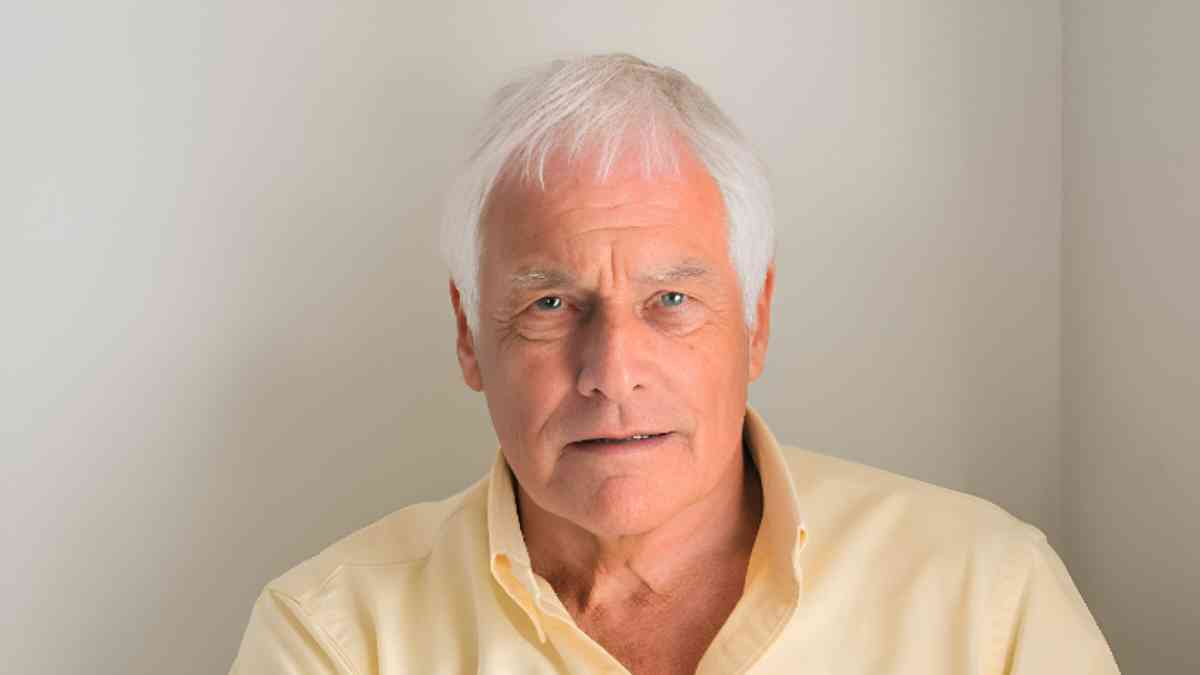Robert Kilroy Silk: The Controversial Politician Turned Television Icon

Robert Kilroy Silk, born on 19 May 1942 in Birmingham, emerged from modest beginnings to become a prominent figure in British public life. Raised in the industrial heartland of England, his early education took place at Saltley Grammar School. Kilroy-Silk showed signs of intellectual curiosity from a young age, which paved the way for his academic journey to the prestigious London School of Economics.
After graduating, he pursued postgraduate research and began lecturing in politics at the University of Liverpool. His time in academia not only deepened his understanding of political theory but also sharpened his rhetorical skills—skills that would later become his trademark both in Parliament and on television.
Entry into Politics: The Labour Years
In 1974, Kilroy-Silk made his move into frontline politics. He was elected as the Labour MP for Ormskirk, a seat he held until boundary changes moved him to the newly created Knowsley North constituency in 1983. He was a confident and vocal parliamentarian, often contributing to debates with a blend of academic rigour and emotional conviction.
Throughout his tenure in Parliament, Kilroy-Silk was known for championing civil liberties, education reform, and strong regional development policies. He gained a reputation as an articulate advocate for the working class, though he occasionally ruffled feathers within his own party by pushing controversial positions.
In 1986, after 12 years in Westminster, he surprised many by stepping down. Rather than fade into obscurity, Kilroy-Silk transitioned into a career that would catapult him into the homes of millions.
Reinvention on the Small Screen
Shortly after leaving Parliament, Robert Kilroy Silk re-emerged as a television presenter. His eponymous BBC talk show, “Kilroy”, launched in 1986 and quickly gained traction. It featured lively debates on social issues, with audiences comprising everyday citizens who shared their views on topics ranging from domestic abuse to immigration.
What set Kilroy apart was his confrontational yet charismatic style. He moderated heated discussions with an ease that blended his academic background with a performer’s instinct. By the early 1990s, “Kilroy” had become a staple of British daytime television.
The programme’s popularity stemmed from its ability to spark national conversations. Unlike the more rigid political discourse he had been accustomed to in Parliament, Kilroy’s show welcomed raw emotion and personal storytelling. For almost two decades, he remained a prominent figure in the national consciousness.
Controversy and Career Turmoil
In 2004, Robert Kilroy Silk’s media career came to an abrupt halt. A column he penned for the Sunday Express sparked widespread outrage after it contained remarks deemed offensive towards Arabs. The article described Arab nations in a derogatory manner, leading to fierce public backlash and accusations of racism.
The BBC responded by suspending his show, and although Kilroy-Silk initially issued a public apology, the damage had been done. Eventually, “Kilroy” was cancelled, and his longstanding television career ended in controversy.
The incident marked a turning point, not only in his personal life but also in his public image. Once seen as an informed, if slightly provocative, voice on social issues, Kilroy-Silk now found himself increasingly associated with nationalism and anti-immigration rhetoric.
Return to Politics: A Right-Wing Revival
Despite the media fallout, Kilroy-Silk was far from finished. That same year, he joined the UK Independence Party (UKIP) and was elected as a Member of the European Parliament (MEP) for the East Midlands. His tenure in the European Parliament marked a significant shift in his political ideology.
Once a Labour MP aligned with social democracy, Kilroy-Silk now embraced a Eurosceptic, right-wing platform. His charisma and name recognition helped UKIP secure greater visibility, and some credited him with injecting the party with a new sense of legitimacy and energy.
However, his time in UKIP was short-lived. Clashes with party leadership, particularly with Nigel Farage, led to his resignation. In January 2005, he founded his own political party, Veritas, promising to restore “truth and integrity” to British politics.
Veritas: Ambition Without Longevity
Veritas—Latin for “truth”—was Kilroy-Silk’s ambitious attempt to reshape British politics. It was marketed as a no-nonsense alternative to the mainstream, with a strong focus on border control, national identity, and traditional values.
Yet despite its founder’s high profile, Veritas struggled to gain a foothold. The party failed to make significant inroads in local or national elections, and internal disagreements further weakened its foundation.
By the end of 2005, Kilroy-Silk resigned as party leader. Veritas faded into obscurity, remembered more as a political footnote than a transformative force.
Personal Life and Retreat from Public View
Away from the cameras and the corridors of power, Robert Kilroy Silk led a relatively private life. He has been married to Jan Kilroy-Silk since 1965, and the couple has children. Reports suggest he now resides in the South West of England, possibly Plymouth, where he enjoys a quieter lifestyle.
Despite his polarising legacy, Kilroy-Silk remains a fascinating figure. Few individuals have traversed both politics and media with such visibility, and fewer still have experienced the dramatic rise and fall he endured.
Legacy: From Parliament to Populism
Robert Kilroy Silk’s legacy is as complex as it is controversial. In his early political career, he was a champion of social causes and a thoughtful MP with progressive leanings. His reinvention as a television host expanded his influence, introducing political discourse to a mass audience in an accessible format.
However, his later years were marred by divisive rhetoric and short-lived political ventures. His association with UKIP and Veritas positioned him as an early advocate of the populist wave that would later culminate in Brexit. Indeed, some have labelled him the “Godfather of Brexit” for helping to normalise Eurosceptic views during a time when such positions were considered fringe.
While historians may debate the merits of his contributions, there is little doubt that Robert Kilroy Silk left a lasting imprint on British political and media culture. He embodied both the power and the peril of public influence—proving that charisma can elevate, but controversy can just as swiftly diminish.
Conclusion
In the ever-evolving tapestry of British public life, Robert Kilroy Silk stands out as a rare figure who crossed boundaries—intellectual, political, and cultural. He was never afraid to speak his mind, often to his detriment. Yet, it is precisely this audacity that defines his legacy.
From Labour MP to daytime television host, from political exile to right-wing firebrand, Kilroy-Silk’s journey reflects the changing currents of British society over the last half-century. Love him or loathe him, his story offers a compelling study of ambition, transformation, and the costs of speaking without a filter.



